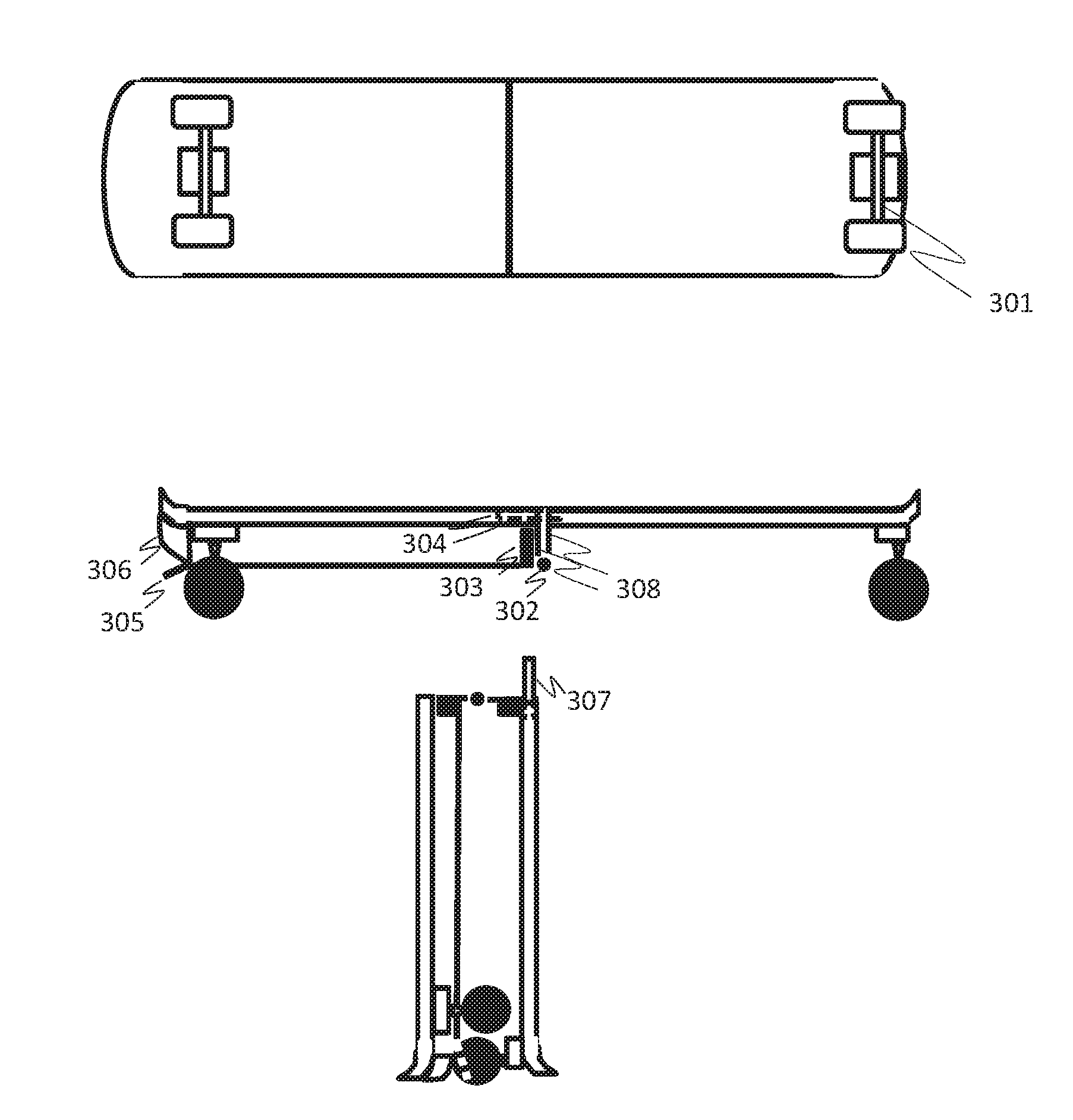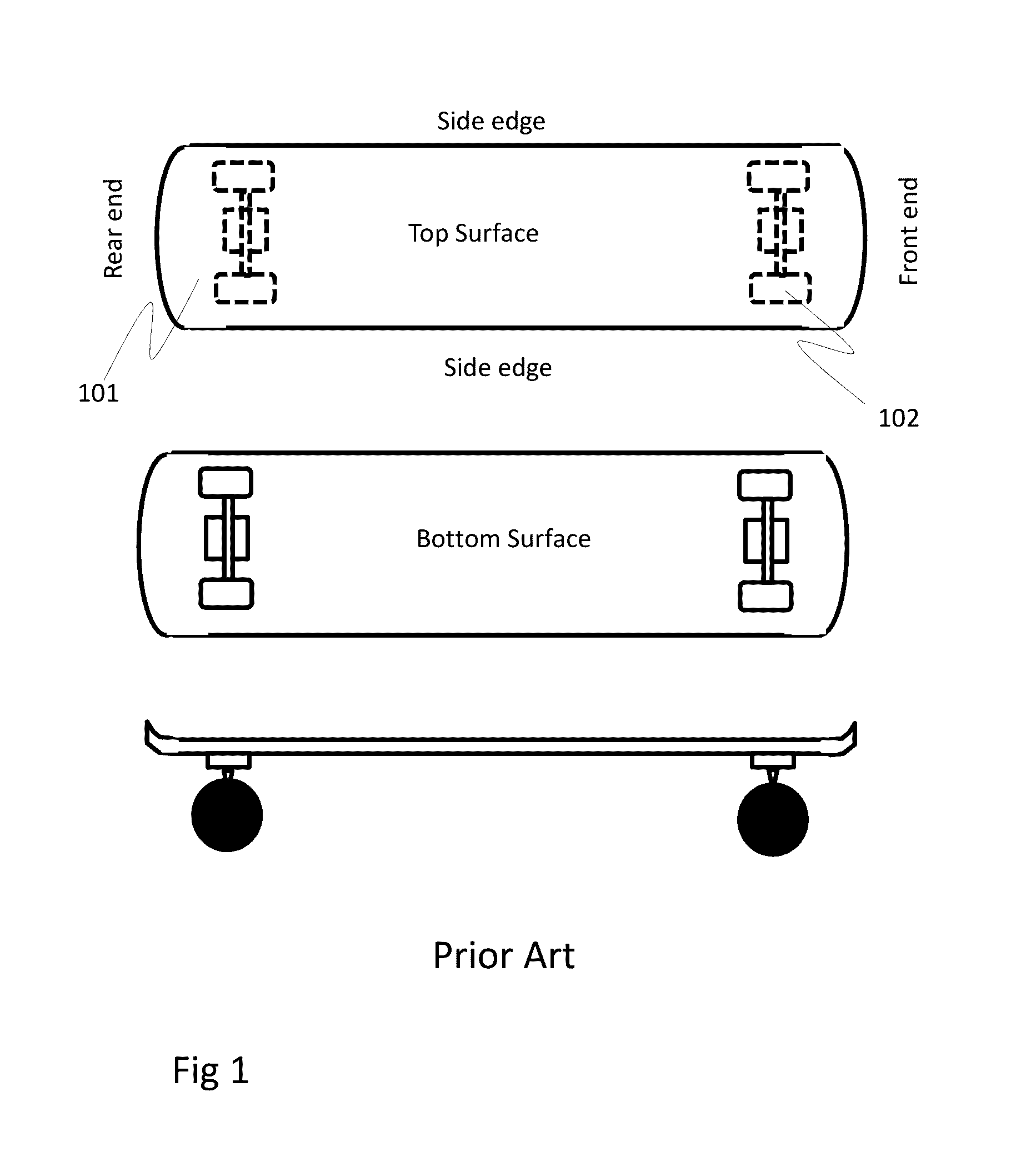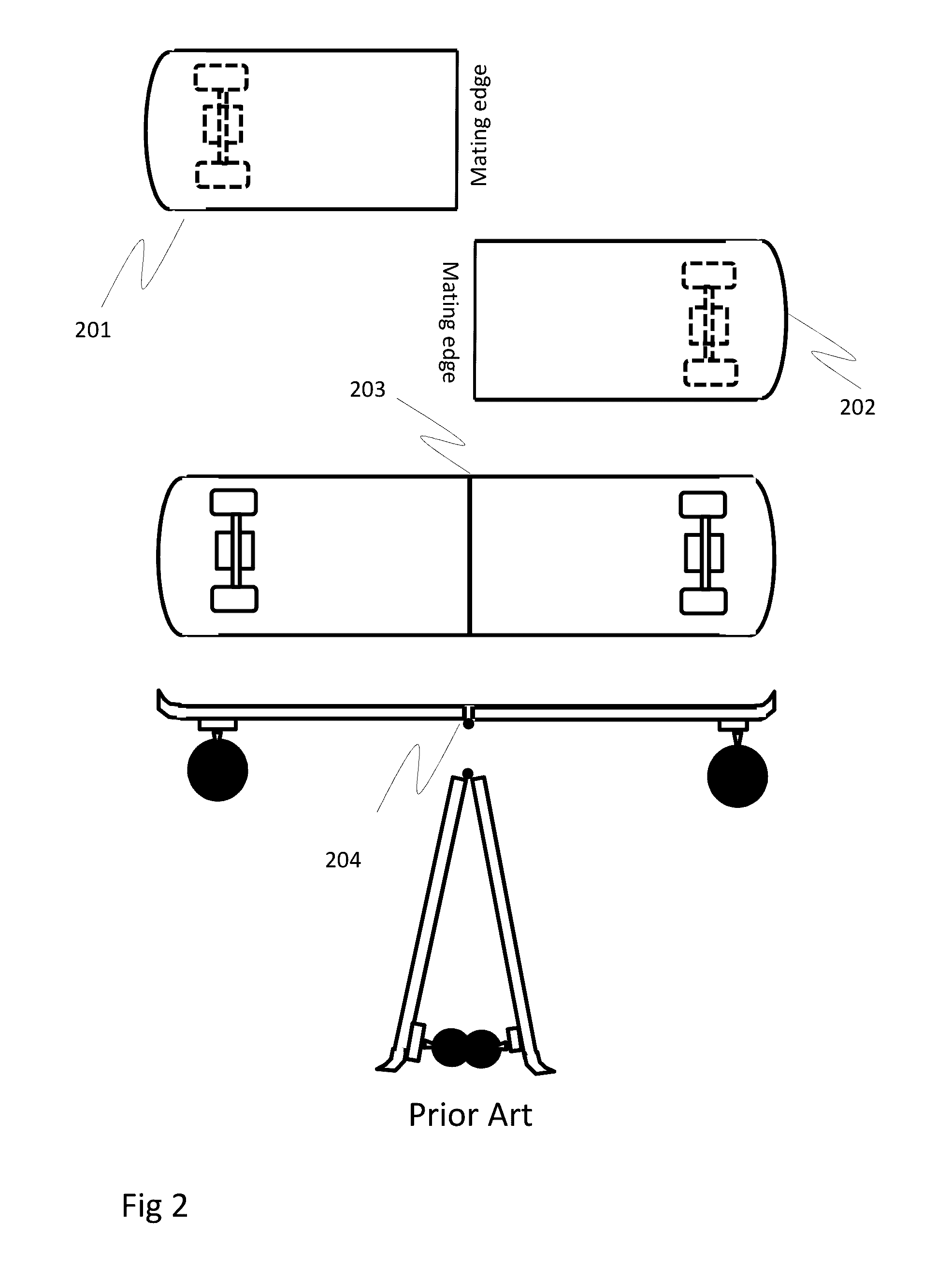System and method for a folding skateboard with hands free folding operation
a technology of hands-free folding and folding skateboard, which is applied in the field of folding skateboards, can solve the problems of creating nuisance situations for other people, reducing the appeal of foldable skateboards, and placing skateboards on the floor or under seats, etc., and achieves the effect of convenient folding
- Summary
- Abstract
- Description
- Claims
- Application Information
AI Technical Summary
Benefits of technology
Problems solved by technology
Method used
Image
Examples
Embodiment Construction
[0020]Skateboards and skateboarding began as a primarily recreational activity.
[0021]As shown in FIG. 1, a typical skateboard has a rigid deck upon which the user stands. The deck has a top surface, bottom surface, side edges, and front and rear ends. On the bottom surface, wheels and wheel mounting structures are located near the rear end (101) and front end (102). Skateboards vary in size but typical width is less than 12 inches and typical length, from front to rear end, is 33 inches or less. The weight of deck, wheels and wheel mounting structures may be 10 pounds or more. Because, like an automobile, the larger the wheel base, the more stable the ride, some skateboards are made longer than the typical length.
[0022]One innovation to skateboard structures has been the ability to fold the deck. FIG. 2 illustrates an exemplary bi-folding skateboard. As shown, the formerly unitary deck is now comprised of two deck portions (201 and 202). Using a pivot and pivot pin subsystem, one ca...
PUM
 Login to View More
Login to View More Abstract
Description
Claims
Application Information
 Login to View More
Login to View More - R&D
- Intellectual Property
- Life Sciences
- Materials
- Tech Scout
- Unparalleled Data Quality
- Higher Quality Content
- 60% Fewer Hallucinations
Browse by: Latest US Patents, China's latest patents, Technical Efficacy Thesaurus, Application Domain, Technology Topic, Popular Technical Reports.
© 2025 PatSnap. All rights reserved.Legal|Privacy policy|Modern Slavery Act Transparency Statement|Sitemap|About US| Contact US: help@patsnap.com



